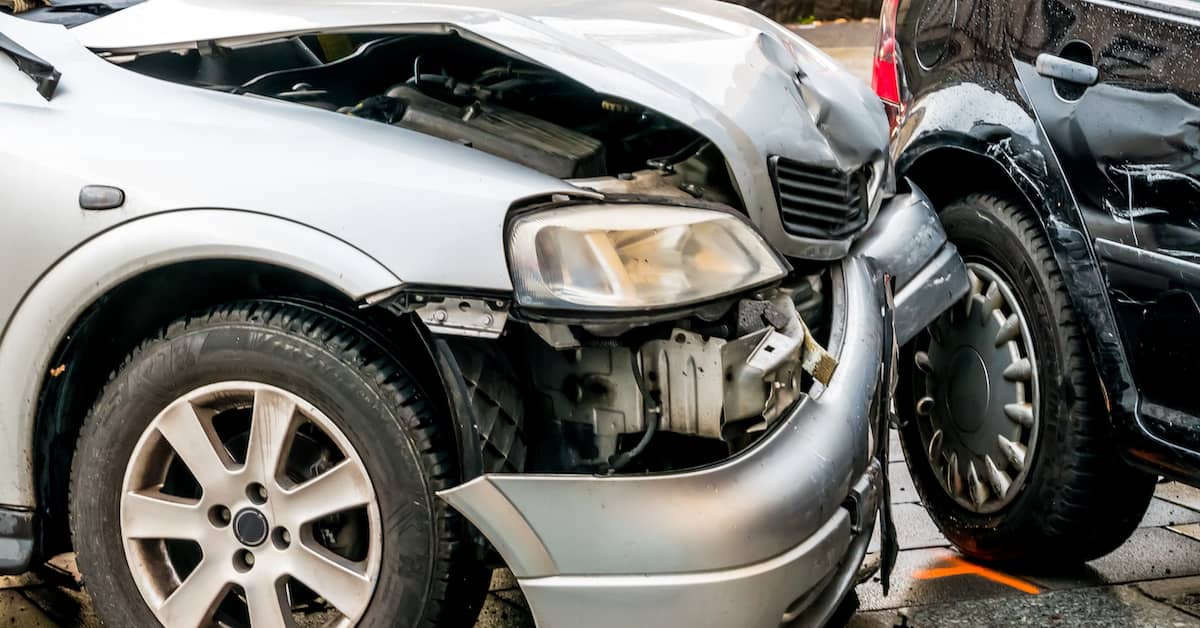How Is Fault Determined in a Florida Car Accident?
Being involved in a Florida car accident can be frightening and overwhelming. The unexpected and sudden derailing of your day, your week, and perhaps your life, feels surreal and shocking. Documenting the wreck, dealing with hospital bills, and filing police reports and claims with insurance companies can all seem insurmountable at the time of the accident.
Amidst the chaos is the vital question: Who is going to be responsible for all this damage? It is crucial that you have an understanding of how fault is determined in a Florida car accident. Being prepared with that information will help simplify the process if you end up the unwitting participant in a car accident.
If you’ve been involved in a Florida car accident, you could be dealing with the heavy financial burden of car repairs and medical bills, not to mention lost wages and pain & suffering. In that event, contact Colling Gilbert Wright for a FREE, no-obligation consultation. We can discuss your situation and make sure you are pursuing all the compensation you deserve. Call (407) 712-7300 now to speak with one of our Orlando car accident lawyers.
Is Florida a No-Fault State and What Does That Mean?
Florida is one of the twelve states that use a “no-fault” car insurance system. This means that if you are injured in a car accident, you will file a claim with your own insurance company whether you are at fault or not. No-fault laws ensure that medical costs related to injuries from the car accident are covered no matter who is at fault.
You are required to purchase what is known as a personal injury protection (PIP) policy. This policy provides coverage for out-of-pocket medical expenses and partial loss of income no matter who is at fault in the car accident. This will be your first line of recovery following an accident. In Florida, you are required to carry PIP coverage of $10,000.
According to Florida Statute 627.736(a)(b)&(c), with your PIP coverage, you are mandated:
- 80% of all reasonable medical expenses
- 60% of any loss of income or earning capacity
- $5,000 per individual in death benefits
In order to seek compensation beyond PIP, you’ll need to prove you suffered significant or permanent injury. If this is proven, you can sue for additional coverage under the other driver’s bodily injury liability (BIL) policy or your own uninsured/underinsured motorist (UIM) policy. BIL and UIM are both optional policies.
If you are able to file a liability insurance claim or lawsuit, you may be entitled to compensation for all of your damages. These may include:
- All accident-related medical bills
- Pain & suffering
- All lost income & other economic losses
Suppose you or a loved one are involved in a Florida car accident. In that case, it is in your best interest to contact a capable Orlando car accident lawyer to ensure you are pursuing any compensation due to you.
Determining Fault in a Florida Car Accident
Even though Florida is a “no-fault” state, fault still needs to be determined. In accidents where there is property damage and in cases of significant or permanent injury, additional compensation may be awarded. For that to happen, the negligent party or parties must be established.
In Florida, insurance company adjusters will typically determine fault. They will review police reports, driver accounts, and any other information collected that relates to the incident. After reviewing all of the available facts, they will declare who is at fault and to what degree.
Florida follows a “pure comparative fault” rule. When more than one party is found to be negligent in an accident, each driver is held liable for their share of the total losses incurred in the crash. A percentage of fault will be assigned to each party involved. For instance, you could be deemed 30% responsible for a crash. When pursuing compensation for your damages, you would only be able to recover 70% of your total losses.
Clearly, the determination of fault is a critical part of your car accident claim. It can also be confusing, and the insurance companies will not be looking out for your best interest. They are more concerned with their own bottom line.
This is another reason to reach out to an Orlando car accident lawyer. Hiring a lawyer who can build a strong case on your behalf can help minimize the amount of fault attributed to your actions and ensure that you are receiving the appropriate compensation for your claim.
Read More: Should I Hire a Lawyer if the Car Accident Wasn’t My Fault?
When Should I Call an Orlando Car Accident Lawyer?
If you or a loved one are involved in a car accident and there is property damage exceeding $500 or any injuries, immediately report it to both the police and your insurance company and document what you can. In the case that you are injured, you need to seek medical care as soon as possible. If you don’t seek medical care within 14 days, you could end up hurting your claim.
Read More: What to Do After a Car Accident
You aren’t obligated to work with an attorney. However, there are often heavy financial burdens involved in a car accident. In order to ensure you are receiving the maximum compensation for your claim, it is essential to work with an experienced lawyer. They can consult with you about your rights, and in the case that you were not at fault, pursue appropriate legal action.
Work with one of the experienced Florida car accident lawyers at Colling Gilbert Wright. Our attorneys can help you pursue the compensation you deserve. Contact us today to schedule your FREE case evaluation.

 (407) 712-7300
(407) 712-7300































